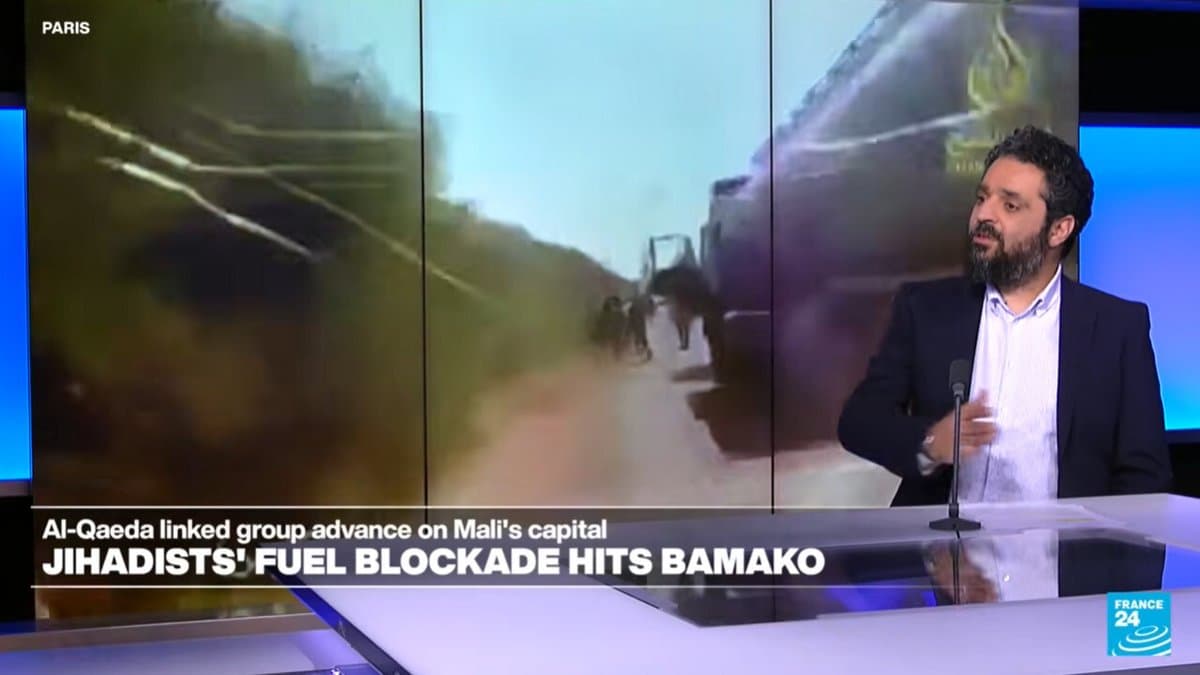We're loading the full news article for you. This includes the article content, images, author information, and related articles.
The escalating crisis in Mali highlights the growing threat of extremist-led economic warfare, a tactic with potential security implications for East Africa as nations like Kenya continue to combat similar insurgent groups.

The French Foreign Ministry on Friday, November 7, 2025, issued an urgent advisory, recommending its citizens leave Mali as soon as possible via commercial flights. The warning explicitly cautioned against overland travel, citing the targeting of major highways by what it termed "terrorist groups." This move signals a grave escalation in the security situation of the landlocked West African nation, a former French colony.
France's advisory follows similar actions by other Western nations. In late October 2025, the United States ordered the departure of non-essential diplomatic staff and their families from its embassy in Bamako, citing the fuel crisis and the "potential to disrupt the overall security situation in unpredictable ways." The United Kingdom also temporarily withdrew non-essential embassy staff around the same time. These diplomatic evacuations underscore a crumbling of international confidence in the Malian state's ability to secure its capital and vital supply routes.
At the heart of the crisis is a crippling two-month fuel blockade imposed by Jama'at Nusrat al-Islam wal-Muslimin (JNIM), an al-Qaeda affiliated jihadist group. By systematically attacking fuel tankers on key highways from neighbouring countries like Senegal and Ivory Coast, JNIM has effectively choked off the economic lifeline to the capital, Bamako. The blockade has paralyzed daily life for the city's four million residents, leading to widespread power outages, the closure of schools until at least November 9, and a near-total collapse of public transport.
The economic fallout has been swift and severe. On Thursday, November 6, 2025, MSC, the world's largest shipping company, announced an immediate suspension of all bookings and operations for Mali. In a statement, MSC cited "major operational challenges caused by safety concerns and a fuel shortage" as the primary reasons for the halt, which affects all corridors from regional ports. This move is expected to further isolate Mali, which relies heavily on imports for a wide range of goods.
While direct economic ties between Kenya and Mali are minimal—Kenyan exports to Mali were valued at $1.58 million in 2023—the unfolding security crisis in the Sahel has significant strategic implications for East Africa. The tactics employed by JNIM, particularly the use of an economic blockade to destabilize a national government, present a worrying evolution in extremist strategy that could be emulated by groups in other regions, including Al-Shabaab in Somalia.
Kenyan security analysts are closely monitoring the situation, noting the parallels between the challenges faced by the Malian junta and the long-standing fight against insurgency in East Africa. The potential collapse of a state in the Sahel could create a vast, ungoverned space, allowing for the proliferation of arms, extremist ideologies, and transnational criminal networks that threaten continental stability. Kenya, which has previously contributed to peacekeeping and counter-terrorism efforts across the continent, including a UN Security Council visit to Mali and Niger in 2021 to assess the terror threat, has a vested interest in preventing such a domino effect.
The crisis exposes the profound fragility of Mali's military-led government, which seized power in coups in 2020 and 2021. The junta's decision to expel French and other European forces, severing key security ties, has created a vacuum that its forces and allied Russian paramilitary personnel have been unable to fill. The blockade has revealed the government's vulnerability, sparking fears that Bamako could fall, potentially transforming Mali into an Islamist state governed by Sharia law.
On Monday, November 4, 2025, Mali's leader, General Assimi Goita, publicly acknowledged the severity of the crisis for the first time, admitting that military-escorted fuel convoys were being ambushed and burned. The situation remains highly volatile, with the international community's withdrawal of personnel indicating a widespread belief that the Malian government is losing control, a development that poses a significant threat to the stability of the entire Sahel and beyond.
Keep the conversation in one place—threads here stay linked to the story and in the forums.
Sign in to start a discussion
Start a conversation about this story and keep it linked here.
Other hot threads
E-sports and Gaming Community in Kenya
Active 9 months ago
The Role of Technology in Modern Agriculture (AgriTech)
Active 9 months ago
Popular Recreational Activities Across Counties
Active 9 months ago
Investing in Youth Sports Development Programs
Active 9 months ago